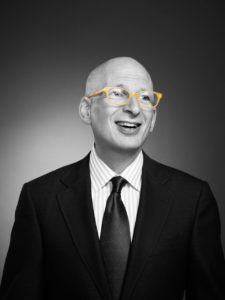Are Chronic Problems Solvable?
One of Seth Godin’s recent posts was a fascinating look at framing problems. He cited nine factors that make it easier to address them.

Riffing on two of the nine, I wrote him this letter (I’ve done some minor editing for clarification since sending it to him):
Non-chronic–rationalization is our specialty, and the reason we learn to rationalize is so that we don’t go insane when faced with long-term, persistent issues. We bargain them down the priority list.
Solvable–see that earlier riff about rationalization and chronic problems. If a problem doesn’t seem solvable, we’re a lot less likely to stake our attention on it.
Maybe this is one key to why I haven’t yet really made a full transition to marketing myself as a consultant at the intersection of profitability and solving *chronic* problems such as hunger, poverty, war, and catastrophic climate change. I have done some messaging on these problems being solvable even though they are millennia-chronic, other than climate change, which is only 200 years old as a major problem. But maybe they still feel too big and scary for most people to see themselves as part of the solution.
And yet, in our brief lifetimes…
- Legalized apartheid was eliminated in South Africa, Zimbabwe, and the American South. Discrimination still exists, of course, but the brutal government repression and the harsh laws are gone.
- Enormous progress has been made on world hunger (see #10 at that link), despite a tripling of world population since the 1940s.
- Six life-threatening diseases have been eradicated or are on the way out.
- We’ve learned how we can move our entire economy away from polluting fossil and nuclear energy sources that risk our health and safety to clean, renewable sources, along with huge strides in efficiency that make this future possible.
A lot of the progress is very recent, and I think much of the credit goes to the eight UN Millennium Development Goals (adopted in 2000) and their successors, the 17 UN Sustainable Development Goals (SDGs) (adopted in 2015),
So here’s the question: What advice would you give me in marketing my consulting, speaking, and writing to a population that is so shut down about solving these massive problems that they don’t see the progress we’re actually making? (And may I quote your answer in the blog?)
Shel Horowitz – “The Transformpreneur”(sm)
<End of my letter to Seth>
I got back a one-sentence reply agreeing that we’re making progress and noting that the progress happens more easily when we tell those stories.
So, here’s your opportunity to go where Seth doesn’t go. Let’s get a nice discussion going on how we can convince people that we can–and should–solve long-term, systemic, chronic problems. Please leave your comments.

